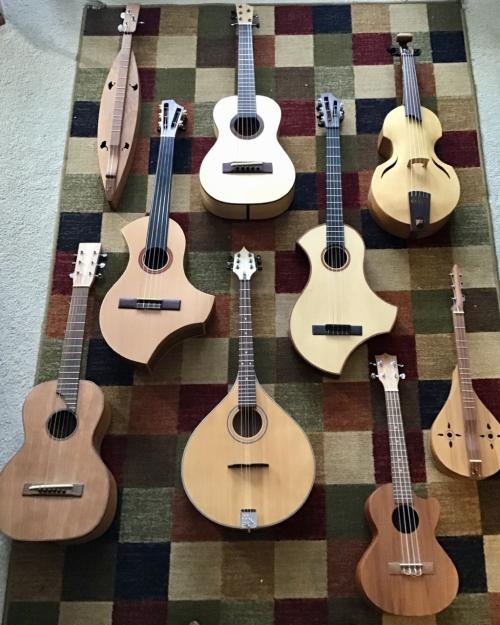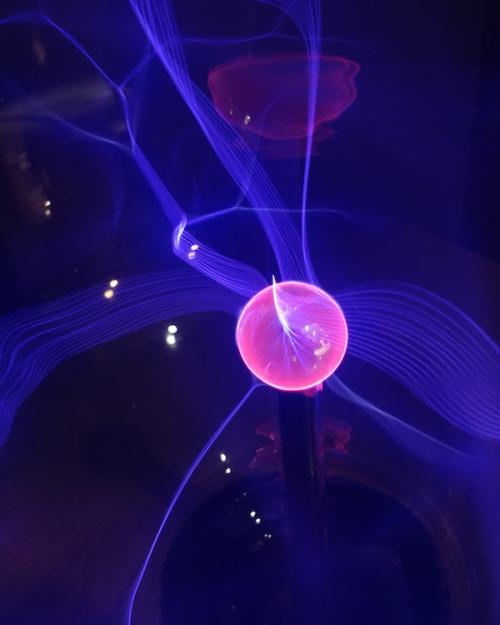About
The College of Arts & Sciences is committed to fostering curiosity-driven, highly innovative research across all areas of scholarship within its purview. By expanding the frontiers of knowledge and understanding, fundamental research enables advances in a wide variety of fields; pioneering innovations based on discovery fuel breakthroughs, promoting the wellbeing of individuals and societies.
The New Frontier Grants program aims to enable the early stages of a select number of novel, high-risk/high-impact research projects with compelling visions and strategies for transformative advances in the arts and humanities, social sciences, and natural sciences.
These grants are made possible thanks to philanthropic support, including from James F. Adelson '85 and Susannah Adelson; Miriam Shearing ’56; Carolyn Wiener ’69 and Malcolm Wiener; Scott Fowkes ’85 and family; and Jesse Ho ’88 and Eliza Lau ’88.
Eligibility
Applications for the 2024 cycle must be submitted by 5:00pm on Monday, March 4. See the Call for Proposals for details and submission instructions.
Tenure-stream A&S faculty members are eligible to apply. A proposal could be led by a single A&S faculty member, or by two or more A&S faculty members, if appropriate; a proposal could also include faculty from other colleges at Cornell or elsewhere as collaborators.
Proposals that are highly original, need preliminary data/analyses to demonstrate proof-of-concept, and/or involve new interdisciplinary collaborations are welcome. The program aims to enable early-stage projects for which the investigator(s) is (are) unlikely to receive funding from traditional external sources, but that can be reasonably expected to lead to external support if the initial phase is successful.
While all applications will be considered, in cases of equally meritorious proposals, preference will be given to projects for which other Cornell funding sources (e.g., Academic Integration fund, Atkinson Center for a Sustainable Future, Cornell Center for Social Sciences) are not applicable.
Each proposal will be reviewed by two or more faculty invited by the Senior Associate Deans, with final selections made by the College leadership.
Terms of the New Frontier Grants
Each project will be supported for up to two years at a maximum annual level of $100,000, subject to review of the scope of work and submitted budget details.
Distribution of the second-year of support will be contingent upon submission of a first-year report of reasonable progress, no later than May 1, 2025. Reports should include an update on the identification of potential programs and sponsors for external support.
Funds can be used for the support of visiting collaborators, postdoctoral associates and/or graduate and undergraduate research assistants, including stipends, graduate tuition and health insurance; to acquire necessary materials and supplies; and/or to cover shared facility fees. Any proposed expenditure for capital equipment must be justified in the proposal and be essential to the success of the project.
Funds cannot be used towards faculty salary; however, for those faculty members on 2-2 teaching loads, one course release per year would be allowable (to be included in the proposed budget at a cost of $20,000).
Expenditures for travel cannot exceed $3,000 annually, except upon special request.
Any funds not expended at the end of the second year will be returned to the College.
2023 New Frontier Grants
- “Strong Amphibious Robots”: Itai Cohen, professor of physics, will engineer active systems at the microscale using new, stronger actuators to fabricate microscopic robots that can operate in aqueous environments or – a new innovation – in air. This proof-of-concept amphibious robot demonstration will signal a new era in the design of microscopic machines, opening the door to developing reconfigurable optical metamaterials that fit on an optical fiber and shrinking surgical tools.
- “Rational Design of Heterometallic Complexes as Anticancer Agents": Nandini Ananth, associate professor of chemistry and chemical biology, will perform quantum dynamic simulations, through to uncover the key electronic and nuclear interactions in heterometallic complexes that result in improved metastatic tumor toxicity in preclinical studies, gaining insights to increase the database of potential heterometallic drug candidates.
- "Black Reproductive Justice Archive”: Tamika Nunley, associate professor of history and Sandler Family Faculty Fellow, will create a digital archive of oral histories that features firsthand accounts from people at the forefront of addressing the Black maternal health and reproductive crisis. This database of oral histories will also function as a multimedia platform for understanding Black women’s long historical struggle for reproductive justice.
- “The father’s touch: How paternal deprivation impacts the functional social brain”: Alex Ophir, associate professor of psychology, will investigate how the underlying neural processes that regulate behavior are altered by poor or absent parent-child interactions, particularly involving fathers. He and fellow researchers will profile active neurons regulating the ‘social brain’ in animals that were raised with varying degrees of access to a father, providing foundational data necessary to examine the central hypothesis that paternal care alters the function of the developing social brain – and behavioral resilience.
- Neural circuit mechanisms of memory in a natural environment": Azahara Oliva, assistant professor of neurobiology and behavior,. will explore the richness and complexity of memories of groups of mice living in close-to-natural environments by using wireless technology to record brain activity in an outdoor enclosure facility at Cornell. Results from this project, done in collaboration with Michael Sheehan, associate professor of neurobiology and behavior in the College of Agriculture and Life Sciences, could provide unprecedented insights to current understanding of the brain.
- “The Biopolitics of Global Health After Covid": Timothy C. Campbell, professor of Italian studies, will consider health at the world-wide scale in bringing together sociologists, philosophers, and anthropologists from different parts of the world to discern the Covid-19 pandemic’s effect on how global health is understood and practiced today. The collaborators will investigate how the pandemic changed perceptions of illness, health, science and ethics and reconfigured relationalities between doctors and patients, institutions and subjects, among neighborhoods and communities, and in politics and governance. The project pursues a future in which institutions are better able to meet the challenges presented by the next global health crisis.
- "Molecular Adaptations to Life with Oxygen on Earth”: Nozomi Ando, associate professor of chemistry and chemical biology, will analyze a newly-discovered ancestral group of ribonucleotide reductases, an ancient family of enzymes that serves as a molecular fossil record for life’s transition from an anoxic to oxygenated planet. Understanding how this enzyme family invented multiple solutions to cope with increasing oxygen availability will allow insight into how life adapts to changes in climate.
- “Developing an endangered equid as an integrative model for understanding species persistence and extinction”: Andrew G. Clark, the Jacob Gould Schurman Professor of Population Genetics, together with postdoctoral researcher Arielle Sarine Fogel, will address the biodiversity loss crisis by developing an interdisciplinary model for animal conservation, generating genomic resources for Grevy’s zebras, an endangered animal for which long-term data on behavior, disease and ecology are available. This work will be a first step towards integrating genomic, behavioral, ecological, demographic and computational approaches to understand the biology and evolution of threatened species, with implications for conservation as well as human health, climate change and the global economy.
- Jessica Chen Weiss, the Michael J. Zak Professor for China and Asian Pacific Studies, will use a New Frontier Grant to help launch the Cornell U.S. – China Policy (CUSP) Initiative to bring together academics, experts and practitioners to evaluate and envision potential policy solutions and future trajectories in U.S. policy toward China and the world. CUSP will draw on a wealth of Cornell faculty expertise in security and strategy; democracy and society; tech, trade and talent; and global governance and sustainability.
- “Measuring the Structure and Evolution of Our Universe with Novel mm-Wavelength Spectrometers for the Fred Young Submillimeter Telescope”: Abigail Crites, assistant professor and the Fred Young Faculty Fellow in physics, and Michael Niemack, associate professor of physics and astronomy, will develop prototypes of these new detectors and test them in a cryogenic facility at Cornell. This laboratory demonstration will pave the way for developing larger scale spectrometers for deployment on the Fred Young Submillimeter Telescope in Chile’s Atacama Desert to investigate the structure and evolution of the universe. On-chip spectrometers are a promising new technology for developing ultra-sensitive cameras for studying faint astrophysical signals in the millimeter wavelength range, in particular from the epoch about one billion years after the Big Bang.
- “Probing dynamics of electronic quantum crystals on near-term quantum computers": Debanjan Chowdhury, assistant professor of physics, will work toward developing new protocols to simulate the dynamical properties of exotic quantum materials on noisy intermediate-scale quantum computing devices (NISQ) in his NFG project A special class of quantum magnets, whose properties cannot be computed reliably on classical computers and which remain poorly understood in spite of decades of research, will be studied using NISQ devices. This study could lead to fundamental new insights into long-standing theoretical puzzles and help direct the search for new material routes to realizing such phases of matter.
- “Heritage Forensics: Archaeology, Law, and Politics in the 21st Century”: Lori Khatchadourian, associate professor in Near Eastern studies and anthropology and Adam T. Smith, Distinguished Professor of Arts and Sciences in Anthropology, will build on the work of their research group, Caucasus Heritage Watch, to advance the theory and practice of heritage forensics, a form of engaged research they are developing at the intersection of archaeology, cultural aerospace, law and politics. Heritage forensics uses geospatial technology and media analysis to investigate attacks on the fragile material record of the human past. As public scholarship, this research supports both preservation and accountability, shining light on abuses of power, post-truths, cultural erasure, and the erosion of human rights as these unfold in the medium of tangible heritage. As critical research, the work examines not only the forces that make and unmake heritage, but also the tools of forensic investigation.
- “Intra-Annual 14C Offsets and the Future of High-Precision 14C Chronology": Sturt Manning, Distinguished Professor of Arts and Sciences in Classical Archaeology, proposes that seasonal variations become important for dating and climate. "Radiocarbon (14C) is key to chronology in archaeological, environmental and paleoclimatic research and a proxy for solar activity. With recent advances in high-precision 14C measurement now available, will work toward improving high-precision radiocarbon dating by testing and articulating a 14C offset that takes into account the growing seasons of trees and other plants, which are ever more key as the field becomes higher and higher precision."
NFGs from previous years
NFG News

Cornell ReSounds concert features Moog keyboard, new instruments
New Frontier Grants
Working toward Black reproductive justice from the Library of Congress
American history


